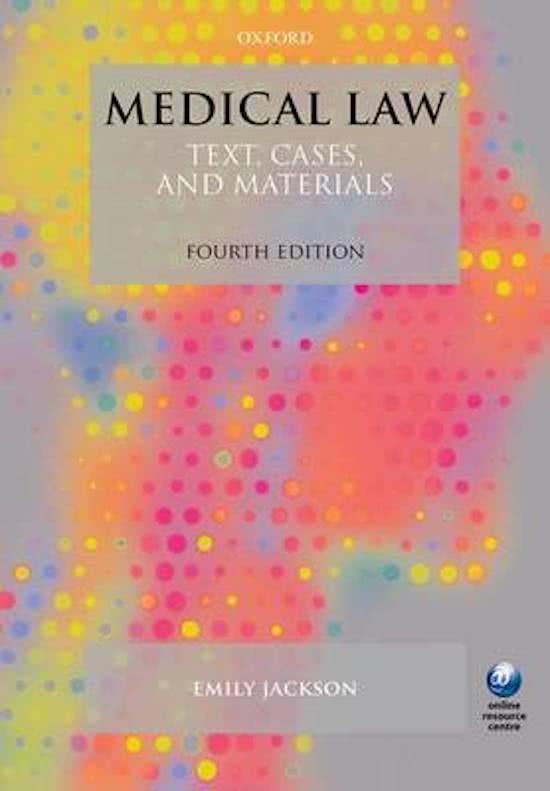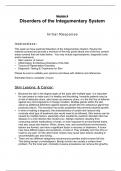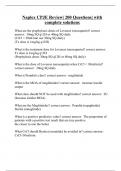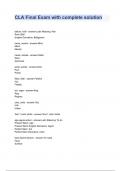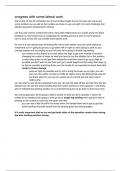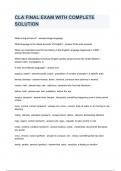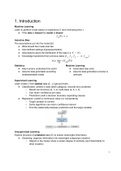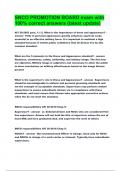2019/2020
MEDICAL LAW AND ETHICS I
, TREATING ADULTS WITH CAPACITY
LEGAL REMEDIES AGAINST NON-CONSENSUAL TREATMENT
1. Trespass to the person (battery)
Any touching of another without valid consent is a battery in tort. Each person has the right to have
their body protected against interference by another. It does not have to result in harm.
It is no defence to a charge of battery that the doctor was acting in the best interests of the patient, or
that he or she exercised all reasonable care and skill.
Where consent has been given but was based on inadequate disclosure or information, an action in
battery will fail unless there was fraud, misrepresentation or duress:
Chatterton v Gerson –
Facts: The patient had been given an injection for chronic pain in her spine. The basis on which she
alleged a battery was that she had not been told of the risk of numbness following the injection. When
she later experienced numbness, P claimed that her consent was invalid and therefore there had been
a battery.
Held, per Justice Bristow: Not being told of the risks is not enough to invalidate consent. It is enough
that the patient knows of the risks in broad terms. The cause of action on which to base a claim for
failure to go into risks and implications is negligence, not trespass.
The Creutzfeldt-Jakob Litigation [1995] –
Facts: The claimants had been treated with Human Growth Hormone which had been extracted from
pituitary glands that had been unlawfully harvested from dead bodies. They argued they have consent
on the understanding that the drug had been prepared lawfully, and that this consent was vitiated by
the unlawful extraction.
Held, per Justice May: 'A person may succeed in a claim for failure to inform or warn only if the failure
alleged amounts to negligence. To frame such a claim in battery is not only deplorable but
insupportable in law.'
R v Richardson [1999] –
Facts: Patients received dental treatment from the defendant without being informed that the
defendant was suspended from the General Dental Council’s register.
Held: Consent valid. Conviction quashed by CoA. There may be a criminal case in terms of fraudulent
misrepresentation, but the consent is not affected because 'the complainants were fully aware of the
identity of the appellant.'
The consent is invalid in the following four cases:
R v Tabassum (2000) –
Facts: Breast examinations were conducted by the defendant upon members of the public under the
auspices of conducting research into breast cancer. Upon police investigation, no evidence of such
, research was found to be in progress and it became clear that the defendant had no medical
qualifications.
R v Williams [1923] –
Facts: The defendant, a music tutor, ‘administered’ sexual intercourse to a pupil telling her that it would
improve her singing voice.
The following are both approved American cases:
Mohr v Williams (1905) –
Facts: The patient signed a consent form to an operation on her right ear. Whilst she was anaesthetised,
the defendant discovered the disease to be emanating from the patient’s left ear and performed
surgery on that ear.
Ashcraft v King (1988) –
Facts: The patient consented to a blood transfusion, provided that the blood used was ‘family blood.’
The hospital ignored the patient’s request and used stranger’s blood for the transfusion, with the result
that she contracted HIV.
Another principle that affects the validity of consent or refusal of treatment is evidence of undue
influence:
Re T (Adult: Refusal of Treatment) [1993] –
Facts: T concerned a young woman who had been involved in a road traffic accident in which she lost
a significant amount of blood. Whilst conscious, she said that she will refuse blood products, even in
the event that she will die if she does not receive blood. She later became critically ill and lost
consciousness. A nurse said she only refused treatment after being visited by her mother who was a
devout JV. An application was made to the Court in which it was ruled that there had been undue
influence.
Held: The Court granted a declaration to go forward with treatment. Undue influence can invalidate
the patient's decision not to consent to treatment.
Re AB [2016] –
Held: Some non-consensual treatment may not involve a 'touching' and therefore would not constitute
a battery.
Judicial hostility to the use of battery in medical cases may be due to the connotations of a charge of
battery. A doctor who fails to tell a patient about a small risk inherent in a proposed treatment does
not intend to injure her.
2. Actions in tort of negligence for failure to disclose information
The leading case here is now Montgomery v Lanarkshire Health Board [2015]. Doctors have a duty to
inform patients about the 'material' risks of proposed treatment.
It is also possible that the failure to obtain consent at all could amount to negligence: Border v Lewisham
and Greenwich NHS Trust [2015].
Anne Maree Farrell and Margaret Brazier write that there is little cause for doctors to panic that the
'litigation floodgates' have opened in relation to consent and information non-disclosure claims as the

